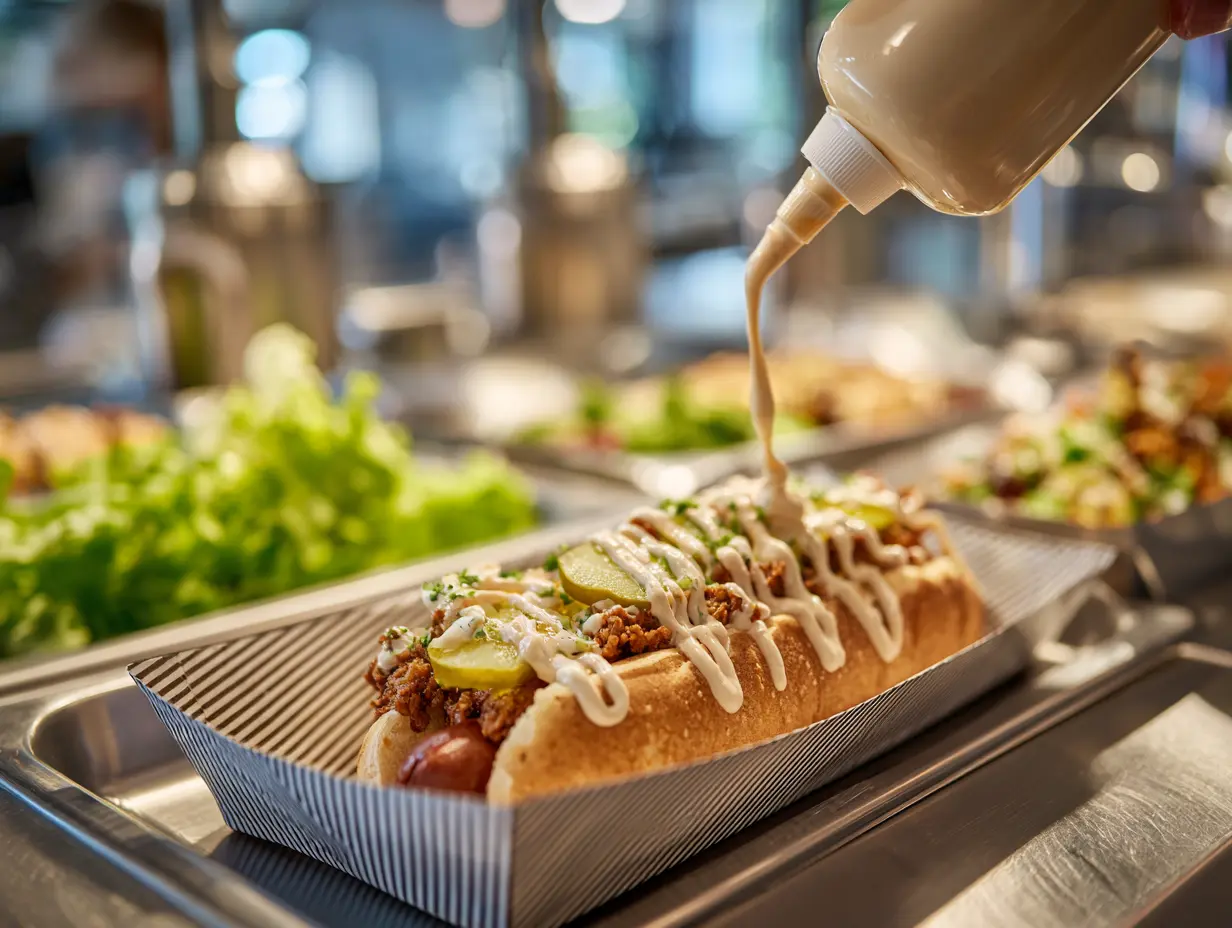
Recent months have been marked by an acceleration in the number of QSR, Coffee and Bakery franchises popping up. In this ultra-competitive environment, how does one deploy their franchise and maintain profitability?

Laure Joyeux
16
Oct 2025

A franchise is a business model where an entrepreneur, called a franchisee, purchases the right to use the concept and brand of a well-established restaurant, called the franchisor. The restaurant opening is then carried out using all the procedures, systems, products, and services developed by the franchisor. In exchange for using the company's tools and brand, the franchisee normally pays a royalty.
The strength of QSR franchises comes from their easily replicable and scalable models. They allow entrepreneurs to create profitable restaurants by relying on an already established brand, as testified by Mohamed Soualhi, founder of the Tacos Avenue chain: "The franchisee seeks a fairly innovative concept with trendy specifications, easily replicable and easy to implement." Current entrepreneurs are therefore looking for a way to quickly create a profitable business with limited risk, by relying on a recognised brand.
Developing a franchise network in the QSR sector allows for multiplying sites without having to invest in each new location. It's a rapid way to develop territorial coverage. Using this model, the brand founder shares financial risks with franchisees who are responsible for financing their own business. Royalties and franchise fees serve to remunerate the franchisor for the concept and the implementation of services to franchisees such as know-how transmission, legal monitoring, product innovation, customer journey innovation, continuous training and purchasing centre to name a few of the services they provide.
These support functions also enable quality and product control within a franchise. Established procedures must be respected, as well as standards. Brand consistency is thus guaranteed.
Franchises offer numerous advantages for future managers looking to launch in the QSR sector. One of the major advantages is that they reduce the risks associated with opening an independent restaurant. By joining a franchise, they benefit from the brand's experience and know-how, as well as its network of suppliers and distributors. The franchisor's reputation is well established. These recognised brands are appreciated by the general public, which allows for generating clientele from the restaurant's opening.
By choosing to develop a QSR franchise, the manager benefits from the sector's continuous growth.
Here are some tips from two QSR leaders who are at different stages of their franchise development: Benjamin Attal, Co-founder of Franks Hot Dog, after opening 12 concessions in less than 2 years, the brand has just opened its first franchise, and Mohamed Soualhi, founder of Tacos Avenue, who already supports 19 franchisees in France, Switzerland, and Morocco.
In a competitive environment where numerous restaurateurs offer similar concepts, one must be able to distinguish oneself. One solution is to develop a unique concept based on quality and customer satisfaction. By developing an original QSR franchise concept that cannot be found elsewhere, you benefit from a competitive advantage in the market and will attract numerous franchisees. The opening must be able to happen quickly, without excessive investments.
Benjamin Attal shares the reasons for his Franks Hot Dog restaurants' success: "Our concept is simple, so not very expensive. It takes about a hundred thousand euros to open a Franks. That's not enormous. We offer a product that's easy to work with and inexpensive. You just need a small unit, it's both simple and profitable."
In an increasingly competitive market, it's important to distinguish yourself from other franchises. Before launching, one must have worked in depth on their brand image to distinguish themselves and be visible. Benjamin Attal from Franks Hot Dog understood this well: "It was very important for us to have a strong visual identity, for people to recognise us immediately. For example, our bag is recognisable straight away in a shopping centre: it's royal blue with stripes and a big Franks logo."
Before beginning to recruit franchisees, the business model must be solid and proven to enable rapid and efficient network expansion: negotiated purchases, controlled material costs, a proven concept store.
One must take time to define their franchise model by providing maximum information and support to help franchisees succeed. One must also ensure that the franchise model is profitable and duplicable in another environment.
An audit can help you identify areas that need improvement: customer experience, restaurant design, menu, operational procedures. You can use this information to implement processes and tools to improve your franchise's efficiency.
As Mohamed Soualhi from Tacos Avenue explains: "When we conduct an audit, it allows us to improve internal processes and document them. Our 3-month audit enabled us to simplify processes and eliminate errors that we could have reproduced in different franchises. This touches on the brand, processes, cooking methods, opening and closing procedures, etc. It's very comprehensive. It allows us to verify if it's replicable: if it works here, could it work elsewhere?"
The goal is to guarantee successful network expansion and consistent customer experience across all restaurants. Franchise consultancies can help you with this approach. They will give you an overview of the sector’s best practices thanks to their experience.
To guarantee the quality and uniqueness of your products, you must ensure you have a solid supply chain. This includes raw material sourcing, stock management, and logistics. Franchisees seek your expertise in this area. It's even one of the main reasons they look to join your network.
A major challenge in restaurant franchising, managing multiple sites must be done efficiently to guarantee the brand's success. Technology solutions experts in multi-site management enable real-time monitoring of each restaurant's activity.
Performance monitoring systems are essential for tracking sales, profitability, and customer satisfaction. Franchisees and the franchisor can access these tools online, which enables checking operations, analysing performance, and making decisions accordingly. Providing this support to franchisees is essential for detecting problems as well as growth opportunities.
"We now have labour tools, POS, hubs that collect information from delivery platforms and that we find directly in the tills. Every day we receive the ratings given on Uber Eats or Deliveroo by the restaurant, so we have additional control and know when something's wrong." Benjamin Attal.
When you're a franchisor, choosing stock management software comes right after choosing the POS. Like Inpulse, it must enable rapid duplication of a proven model, and this involves automation:
"We're in a sector where most entrepreneurs only look at turnover, whereas the pillar of catering is margin. They wait for the first accounting statement to discover the reality of the margin they've generated and sometimes it's too late. With Inpulse, I can control the real gross margin, optimise and understand why there are variances. We take inventory of our best-selling products once a week, which allows us to analyse different periods, see if there's wastage or if it's non-compliance with technical sheets that causes variances between theoretical and actual." Mohamed Soualhi.
{{banner_inpulse}}
Supporting franchisees is essential to guarantee point-of-sale profitability and your QSR franchise's success. Discover some tips for effectively supporting your franchisees:
Solid training is essential to help franchisees understand your franchise model's requirements and help them succeed. You must provide thorough training before the restaurant opens, as well as continuous training to help franchisees adapt to market changes. These training sessions aim to assist franchisees in all stages leading to opening, but also to support them throughout their journey.
At Tacos Avenue, they offer a minimum of 5 weeks of initial field training to franchisees: "Initial training starts from franchise discovery. Then there are 5 days of theoretical training followed by 4 weeks in the field. This duration can be extended if the franchisee isn't ready."
Franks Hot Dog goes far in the process and starts the restaurant with their franchisee: "We've planned to open the restaurant with them. They may have spent 4 weeks in a restaurant, but when they arrive on new premises, everything changes. So we support them in opening as if it were our restaurant."
Franchisees may encounter difficulties throughout their journey, so it's important to provide them with constant support. This can include regular visits, performance reports, management advice, and updates on new initiatives or new software.
"Continuous training happens as opening progresses. We visit them often at the beginning then space out visits. We visit at least once per quarter," the founder of Tacos Avenue confides.
By creating a franchisee community, you can foster best practice sharing and help franchisees support each other. You can organise regular events, online meetings, and discussion groups to encourage exchanges.
The goal of this community is to advance the brand. Each franchisee brings their experience and tips to the group. It's interesting to bring these innovative practices back up and integrate them into other restaurants if they've proven themselves. Intranet or extranet solutions are ideal for this.
Franchise representatives can also bring up training requests, needs, or work on improvement areas. Finally, it's possible to meet for a seminar once a year to build links between different entities.
To succeed in QSR franchising, it's important to properly prepare your deployment, distinguish yourself from other franchises, and effectively support your franchisees towards profitability. We hope these few tips will help you and if you’re interested in learning more about how Inpulse can help franchises on their stock management journey with the above - get in touch with one of our experts!
© 2025 Inpulse. Tous droits réservés. Legal information
Politique de confidentialité.